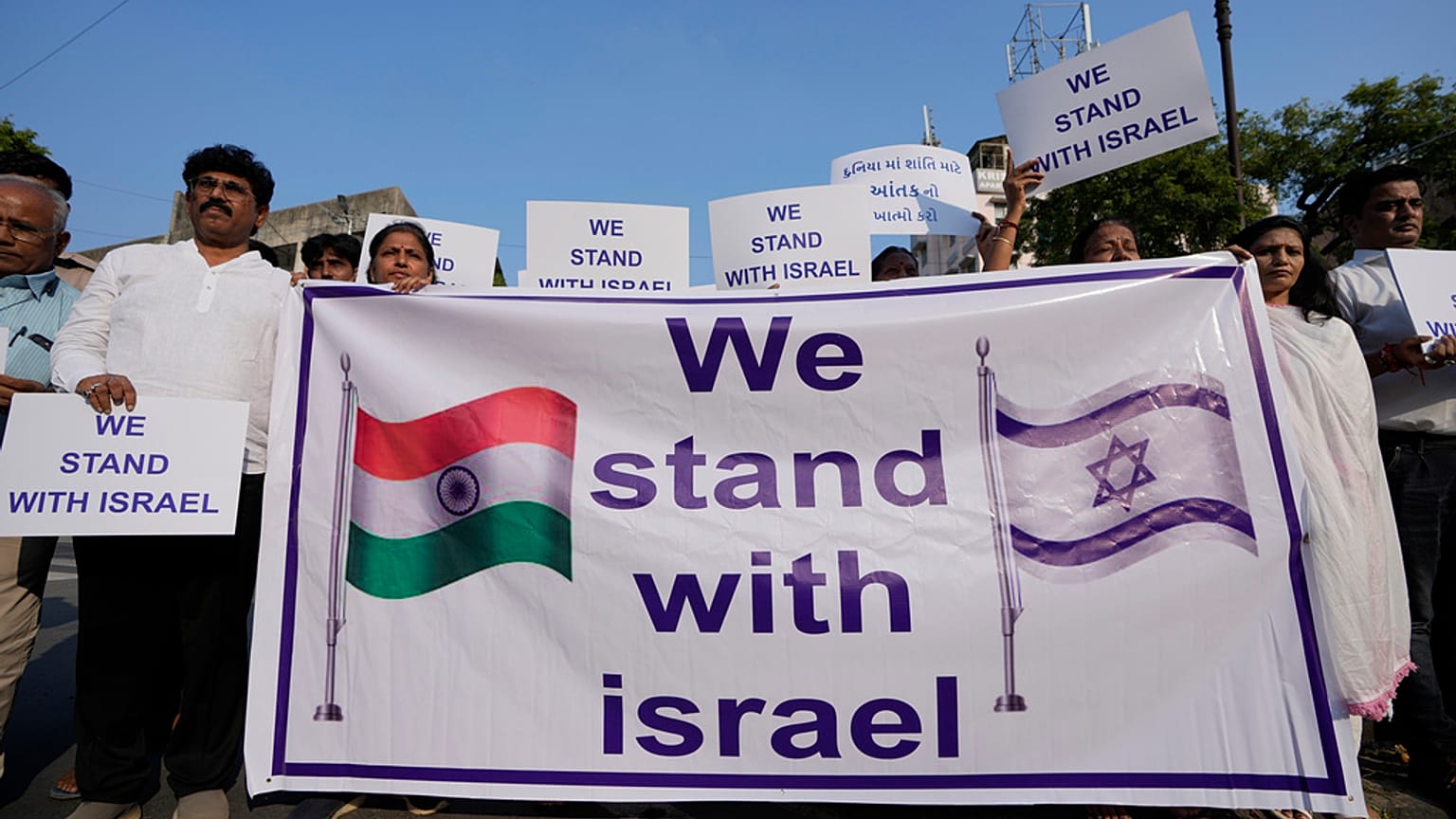Misinformation about the war between Israel and Hamas is rife on social media. But what stands out in this online chaos is that a lot of the accounts pushing these false narratives are primarily from India.
A video shows a man being carried on a stretcher, his body covered by a white blanket. All of a sudden, sirens start wailing and the men carrying the stretcher flee.
 ADVERTISEMENT
ADVERTISEMENT
 ADVERTISEMENT
ADVERTISEMENT
After a few moments, the man escapes from the body bag and runs away.
"Watch how Islamists build narratives. A dead boy suddenly comes alive! As sirens start blaring, the fake dead body also gets up and starts running," tweeted one X user.
Other Indian accounts falsely claimed Gazans are faking injuries and death in order to garner sympathy from the West.
This video as well as the caption has been shared thousands of times on social media by Indian accounts.
But by doing a reverse image search, we can trace the clip back to an Arabic news channel. The original video was posted in 2020 and was allegedly filmed in Jordan.
According to BOOM, an Indian fact-checking site, several Indian X users have been found leading this anti-Palestine propaganda campaign.
These so-called 'disinfluencers', or influencers who share disinformation, have primarily attacked Palestinians online while declaring their support for Israel.
Tensions between Hindus and Muslims in India
But the big question is: why would these Indian accounts even spread disinformation?
"We're getting to electoral season in India. There are going to be national elections next year with some local elections coming up," explained Nicolas Blarel, an expert on Indian politics and associate professor of International relations at Leiden University.
"This is clearly weaponised to mobilise. There are tensions in India between Hindus and Muslims that often rise when we're getting close to elections."
A report by Logically Facts, an organisation that specialises in monitoring misinformation, also explains that this disinformation campaign comes in the run-up to the Indian elections, which will take place in the spring of 2024.
Anti-Muslim sentiment has been on the rise in India since Prime Minister Narendra Modi and his ruling Bharatiya Janata Party (BPJ) came to power in 2014.
Regularly accused of stigmatising Muslims, the BJP is staunchly opposed to its pro-Palestine counterpart, the Congress.
According to a report published in September by Hindutva Watch, a Washington-based group monitoring attacks on minorities, 255 documented incidents of hate speech incidents targeting Muslims were recorded in the first half of 2023.
Overwhelmingly, 80% of these events occurred in BJP-ruled states and union territories.
Moreover, Nicolas Blarel has noticed that India has grown more fascinated with Israel over the past decades.
"Supporters of the BJP consider they face similar threats as Israel when it comes to terrorism," he said.
The country has been subject to attacks by what it says are state-supported armed groups in Pakistan.
Both have fought a series of wars since 1947, largely over the Kashmir region, which both countries claim.
While other platforms such as Meta have been rethinking how to counter hate speech and disinformation, X (former Twitter) has been lagging behind.
Last month, the European Union launched an investigation into X to determine if the platform failed to comply with new EU rules by letting graphic illegal content and disinformation linked to Hamas' attack on Israel run rampant.
If found guilty, X could face fines of up to 6% of its global revenue.















